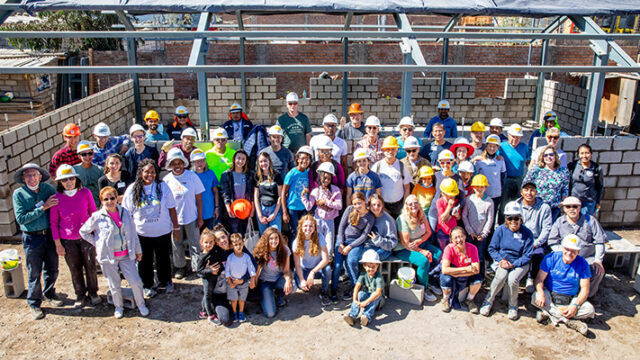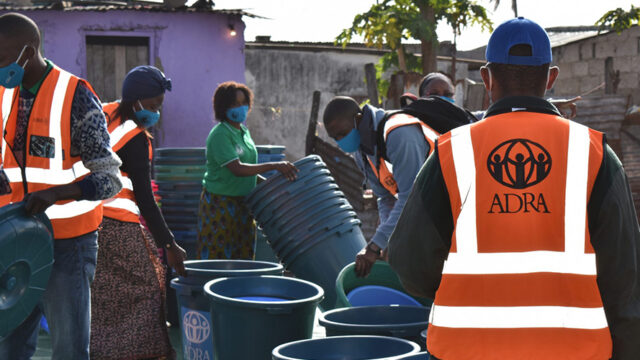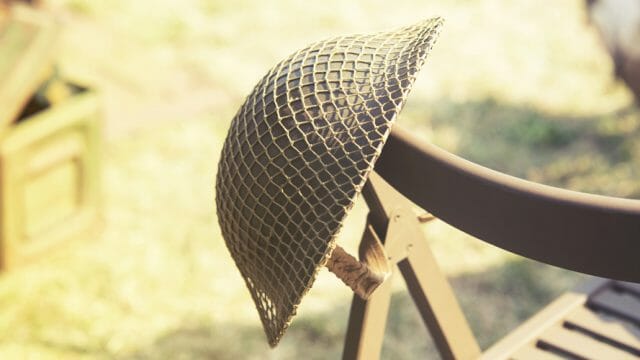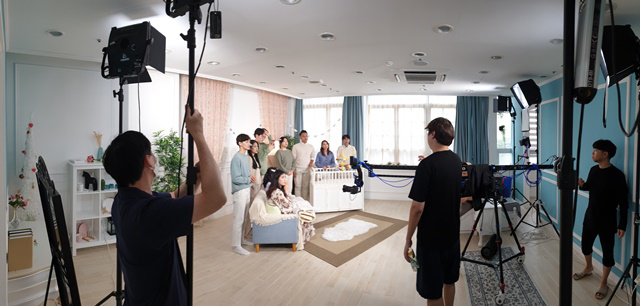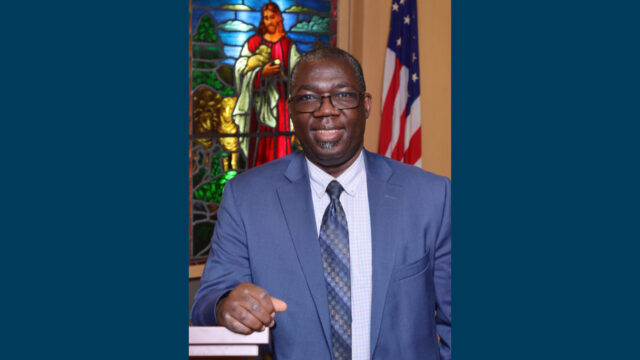How one Maranatha volunteer found belonging, healing, and faith while serving others.
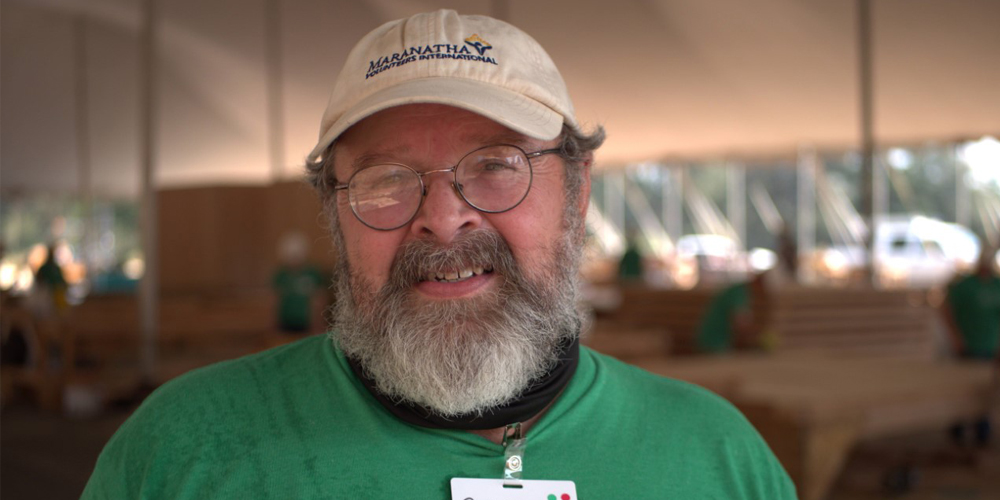
Randy Purviance had planned to be in Paradise, California, United States, for 15 minutes. The stop was a favor to his good friends, David and Susan Woods, who worked for Maranatha Volunteers International. They were leading a volunteer project to build 200 storage sheds for survivors of the Camp Fire, a wildfire catastrophe that had nearly wiped out an entire city.
“Randy, you have to come and see what’s happening in Paradise. It’s really, really special,” David had said.
At the time, Randy was finishing up a health program at the Weimar Institute, located east of Sacramento, California. He was eager to get home to Idaho and see his wife, but curiosity got the best of him, and he agreed to visit the project on his way out.
So on November 21, 2019, Randy loaded his vehicle and headed 90 miles (145 kilometers) north to Paradise.
When he finally arrived at the project location, he got out of his truck and walked over to the construction site. It was an audio and visual cacophony of buzzing saws, pounding hammers, and busybody volunteers scurrying this way and that along a long assembly line that stretched 100 yards (more than 90 meters). Randy just stood there watching, taking it all in.
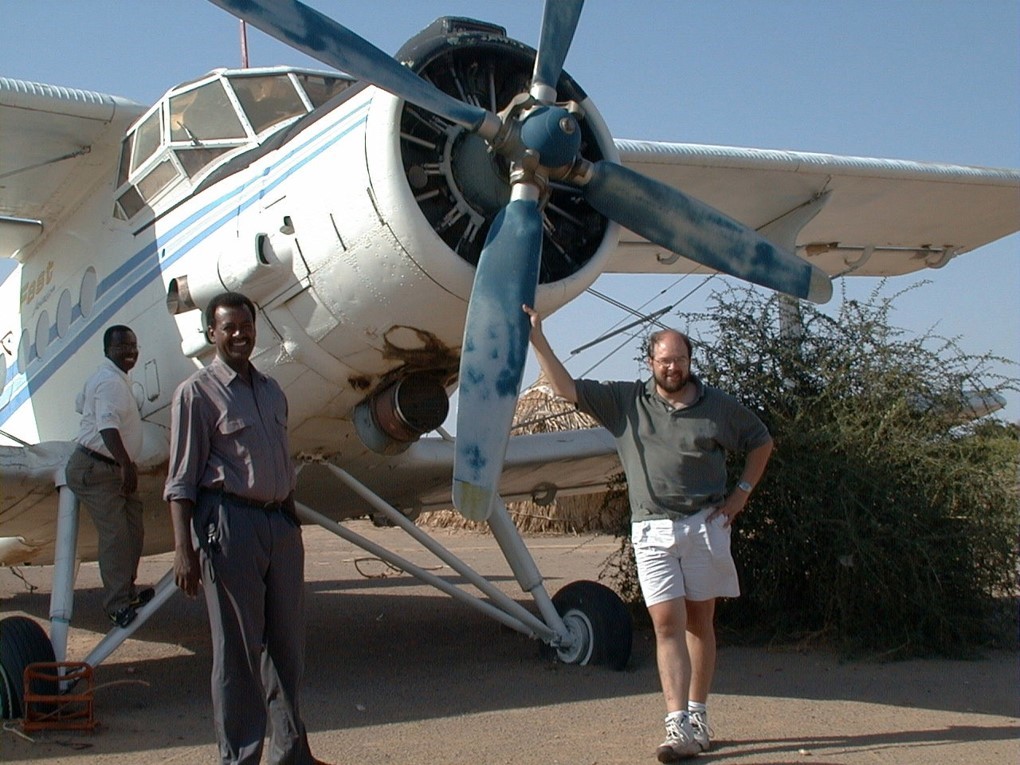
“It took me 20 minutes before I called my wife and said, ‘I think I need to stay here,’ ” he said.
Randy is a fourth-generation Seventh-day Adventist who grew up attending church and church schools in Idaho. He later graduated from Boise State University.
“I studied English and philosophy. I could never get a job as a philosopher, but at least I can understand why,” he jokes.
But he did get a job — a series of jobs that took him all over the world with the Adventist Church. Shortly after getting married, he and his wife, JoElla, headed to Africa as missionaries. Eight years and two children later, Randy and JoElla returned to the United States, and a couple of years after that, Randy started a new role that required him to travel extensively, managing projects all over the world. In 2003, the Purviance family moved again, this time to lead humanitarian work in central Asia. It was here that Randy’s life took an unexpected turn.
Eighteen months into Randy’s new job, the work got intensely complicated. There had been an incident that wreaked havoc on the operation, creating a diplomatic mess. Surprisingly and unfortunately, Randy’s employer offered him little support; he was left to bear the burden and repair the damage alone. To Randy, the abandonment felt like a betrayal by the church that he had served his entire career. But with no other choice but to carry on, he worked on resolving the situation for the next year and a half. It was emotionally brutal and exhausting, and by the end, Randy was done with missions.
“I decided it was time to come home. I think I felt well and truly beaten,” Randy said. So in 2006, the family returned to Idaho for restoration and a fresh start. “I thought, well, things will get back to normal. We’ll enjoy life here, and those things will just disappear. Well, they didn’t disappear.”
Things only got worse. Following the incident, Randy had already started to show signs of depression in the mission field, but by the time he got home, Randy was diagnosed with post-traumatic stress disorder (PTSD). “I think in doing humanitarian work, especially field-based, there’s constant exposure to other people’s trauma. It can be traumatic — you can experience traumatic things yourself. So there’s that cumulative effect of a number of years that I worked internationally.”
Years of buried anguish unearthed, and it seeped into Randy’s entire being. He fell into a deep depression, and the routines of daily life dissolved into anxiety, including his faith. Since his work had been with the Adventist Church, his angst was tied to it, too, and going to church became stressful, uncomfortable, as it was a trigger of his past.
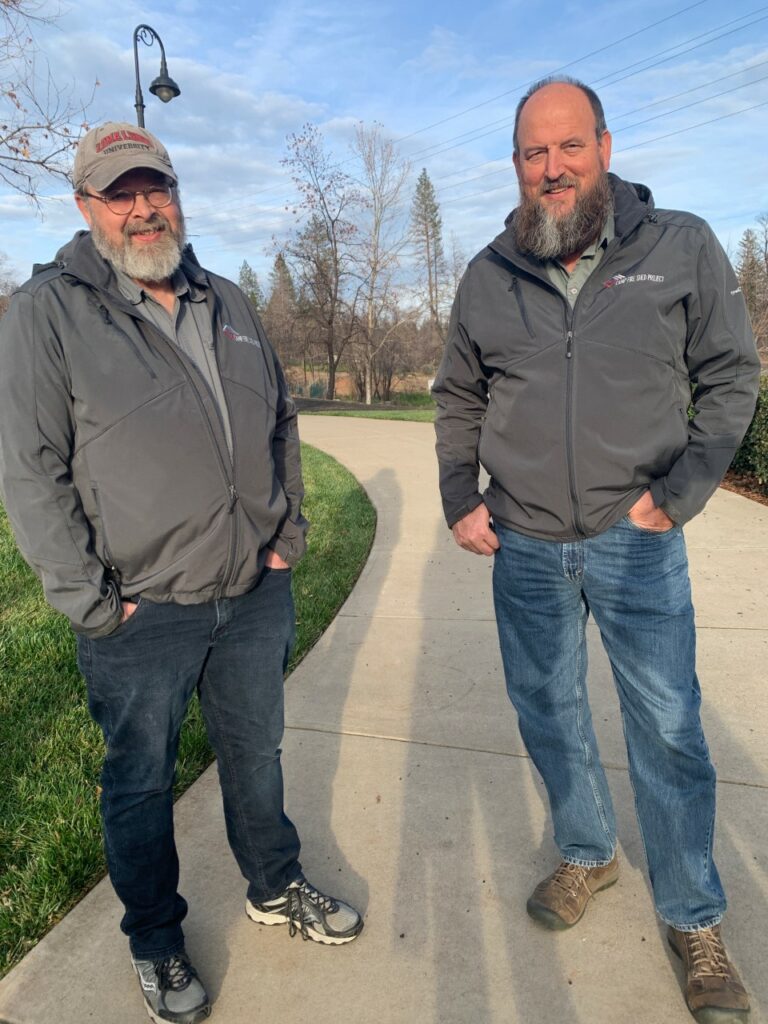
“I found it was easier just to stop going. It was hard to explain to my family and my friends,” Randy said. “And the longer I didn’t go, the easier it was to stop. Just to not give it any thought.”
“I would say that God and I were not on close speaking terms for quite a while,” he continued. “He may have been talking to me, but I couldn’t hear him. That speaks to pain, and sometimes it’s very hard to hear God’s voice when you’re struggling.”
While Randy had quit speaking to God, JoElla was still sending up prayers for her husband. She watched as he slowly faded away.
“When things were really bad, he would come home from work on Friday and go straight to bed and not get up except to quickly eat something,” JoElla remembers. “He wouldn’t get up until Monday morning. He would be in bed, straight through.”
As the years passed, with a series of ups and downs, Randy only got worse.
“He desperately needed help. He got on all these medications — he just was not healthy,” JoElla says. She began searching for treatment plans and came across the Weimar Institute in northern California. They offered NEWSTART, an on-site, whole-body wellness program centered on healthy living and a connection with God. JoElla felt impressed to send Randy.
“I went, sort of kicking and screaming, but I went because, you know, she’s usually right,” Randy says. “And I was just unprepared for what I experienced there. What can I say? I was very overwhelmed by the empathy and the love and the care that I experienced there. Before going to Weimar, I had been on any number of drugs to help with some PTSD symptoms. I was left spending days at a time with a pillow over my face because I didn’t want to see the world. And Weimar changed that.”
Randy returned home from his session, entirely off his medications and with a new lease on life. But then a fall resulted in a head injury, which upheaved his progress, and Randy relapsed. He returned to Weimar again and a third time for another follow-up session.
It was during this third session, in November 2019, that a new factor entered his life. His longtime friends, David and Susan Woods, lived close to Weimar, and they came to see him. The Purviances had met the Woods family when they served as missionaries together in Malawi, and they had maintained a close friendship over the decades.
For the past 13 years, David and Susan had been working for Maranatha, coordinating projects in Africa and the United States. David told Randy about a Maranatha project he was currently running in Paradise, a town located two hours from Weimar. On November 8, 2018, the Camp Fire had burned through the communities of Concow and Paradise, consuming 153,000 acres, 18,804 structures, and 85 lives. It was the most destructive wildfire in California history, and both towns were destroyed. During the first anniversary of the fire, more than 350 Maranatha volunteers had come to build 200 sheds as part of a collaboration with the Paradise Seventh-day Adventist Church.
“David and Susan — how can I say this — they were very convincing. I was ready to go home after 18 days [at Weimar], and Dave insisted, ‘No Randy, you really need to come and see what’s happening at Paradise,’ ” Randy says. “I said, ‘Dave, I’ll drive through. I’ll spend 15 minutes and see what you’re doing.’”
So a few days later, after he wrapped up at Weimar, Randy headed to Paradise. He drove up the highway, along the narrow ridge smattered with blackened trees and through the charred remains of a town that had been decimated. At the sign for the Paradise Adventist church, Randy turned right and into the parking lot. He got out of his car, walked up the stairway that had once led to the church door, and stepped onto the patch of scraped red dirt where a sanctuary had once stood before the fire devoured it. Then he turned and saw a small army of volunteers building sheds.
“It was — it’s hard to put into words, the most amazing act of worship I’ve seen,” Randy says, his voice cracking. “In that burned-down church parking lot, those Seventh-day Adventists were, despite their own losses, helping their neighbors. It’s hard just to say how powerfully that impacted me.”
He ended up staying three days to help deliver sheds to people who had lost everything in the fire. With each delivery, he listened to stories of escape, pain, and survival and, ultimately, hope found in the kindness of strangers.
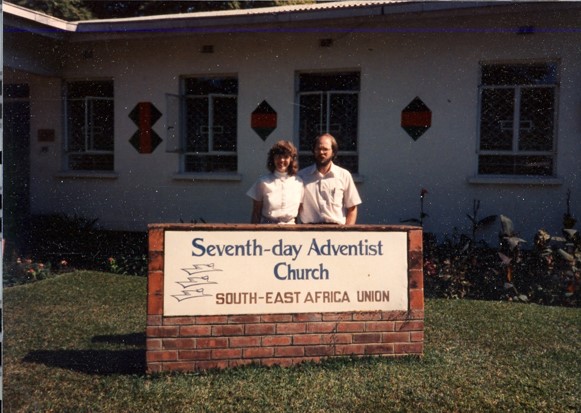
“I experienced a whole new dimension of empathy, and I also felt in the Maranatha context that my humanity meant something as well,” Randy says. “I felt valued. I felt appreciated. You can’t resist those things. They draw you in.”
David recalls watching the change took place almost immediately. “I remember being so happy to see Randy’s excitement grow from the first afternoon there. He quickly engaged with some community volunteers and the shed recipients and had a great rapport with them. We could hear in his voice the fun-loving, compassionate Randy that we remembered.”
Eager to keep Randy involved, David, the director of North America Projects for Maranatha, asked him to help the Paradise church with their grant proposals and action reports to donors, as Maranatha was planning a second shed project. Randy agreed.
A couple of months later, Randy texted David to tell him he was driving back to Paradise for some meetings. While there, he planned to go to church.
“I decided Paradise was a place where I could put my feet back in the water, so to speak. Where I could go to church. What better place for a troubled person to go than to a church where everybody has experienced loss,” Randy says.
That Saturday (Sabbath), Randy took his first step back to church. To worship. To the faith community he grew up with. To God.
When JoElla first got the call that Randy had decided to stay in California for a few more days, she was disappointed. She missed him at home. But in the days that followed, JoElla could hear the change in his voice. Randy was happy. He was back in the mission field.
“It was cool. If he was excited about it, it was a great thing,” JoElla says. “And my first thoughts were, ‘Are we going to end up doing Maranatha full time?’ I started budgeting in my head to figure out how we would do this. To know that he was getting so excited for this, I knew I had to start preparing.”
Just as she predicted, Randy was ready for more mission trips. He got involved in planning with Maranatha and writing grants for more sheds, and when the second Paradise shed project rolled around in September 2020, Randy signed up, along with JoElla. Together, they spent three exhausting but joyful weeks building sheds and making new friends.
“Being there with Randy, working together, was like how we were in Africa. It was just so wonderful to be on the same page again. To see the Randy that used to be,” JoElla says.
When Maranatha announced a third Paradise shed project in late October 2020, JoElla was determined to return. But the trip was scheduled during a busy time at her job; all paid time off was frozen, and everyone was expected to be at work. Despite this, JoElla put in her request for vacation, and it was no surprise when her supervisor turned down the request. But she wasn’t ready to take no for an answer.
“I broke down and told her how much it meant to me. I was losing my sense of mission, and I needed a mission,” JoElla says. “I told her, ‘I feel it’s my mission. I want to go. I need to go.”
Her supervisor told her to pray about it, and she left. A half-hour later, her supervisor returned and said, “JoElla, tell your family you’re going. I don’t want to stand in the way of your mission.”
In the end, Randy couldn’t go on the project, but JoElla went anyway. She worked long days to build sheds and helped cook some meals. Every night her body ached from pain, but her heart was full.
“I was hurting. I was exhausted. And it was wonderful,” she says. “I have a new family here. Quoting from the Heritage Singers song, ‘I love the thrill that I feel when I get together with God’s wonderful people.’”
It’s been a year since Randy first stepped onto the project site at Paradise. It hasn’t all been smooth sailing since then. After all, PTSD and depression are complicated conditions that require persistent care. But even so, Randy’s life is different. His perspective has changed. He’s been actively working on restoring broken relationships from his traumatic time in central Asia.
“If it hadn’t been for the Paradise experience in particular and working with Maranatha, I don’t think I would have taken those steps.”
It’s hard to believe that just a few days on a project could alter the trajectory of a person’s recovery. But for Randy, serving with fellow missionaries was redemption from his painful past in the mission field. It’s an experience that’s been transformative for him and his wife.
JoElla is talking about going on an international project next. Randy is on board to keep serving wherever he can. Both of them have found a way back into the mission field. Randy says at Paradise he found “a place back in the church, at a burned-out church … a place for my own burned-out heart.”
There are varying estimates of how long it takes for a forest to regenerate after a wildfire. Sometimes, you can see signs of life after a few years. Sometimes, it can take decades for the forest to come back. For Randy, the healing has been slow. But growth is definitely taking place. And for him, Maranatha has been a catalyst.
“How does Maranatha change people? It’s a complex question. Each of us comes from different backgrounds. Each of us has different experiences. But there’s something in the act of service that makes us vulnerable. It draws us together. It changes deep within us how we look at the world, how we look at God, how we look at our faith community. We aren’t bystanders. We are participants, fully immersed.”
The original version of this story appeared in issue no. 4, 2020 of The Volunteer magazine.



